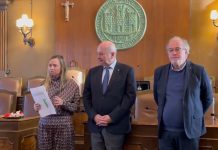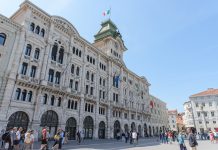by InTrieste
The Order of Physicians and Dentists of Trieste has joined a national appeal urging the Italian government to accelerate medical evacuations from Gaza, where thousands of patients are unable to access urgent treatment.
In a statement, the Trieste council of the professional body said it had unanimously endorsed an initiative launched by the National Federation of Orders of Physicians and Dentists, alongside several humanitarian organizations including Caritas, Médecins Sans Frontières, Arci, the Federation of Evangelical Churches in Italy, and the Sant’Egidio Community. The coalition addressed an open letter to Foreign Minister Antonio Tajani and Interior Minister Matteo Piantedosi, pressing for broader action.
The letter describes conditions in Gaza as “catastrophic,” citing United Nations figures estimating that about 14,000 people urgently require evacuation for life-saving care. Roughly half, it notes, suffer from traumatic injuries that cannot be treated locally, while the rest face serious chronic illnesses such as cancer and cardiovascular disease.
“Gaza’s health system is devastated and unable to meet the immense needs,” the letter states, adding that food, water, and medicines remain in critically short supply. It calls for Italy to expand its role in medical evacuations, drawing on past experiences of solidarity, such as support for refugees from the Balkans in the 1990s, aid for those displaced by the war in Ukraine, and humanitarian corridors established from Lebanon, Ethiopia, Afghanistan, and Libya.
The Trieste order emphasized that its endorsement stems from professional obligations. It recalled that the medical oath commits doctors to treat all patients “without discrimination, promoting the elimination of every form of inequality in health care,” while the professional code of ethics mandates safeguarding life and alleviating suffering regardless of circumstance.
With that framework, the organizations urged the government to strengthen Italy’s evacuation program, expand reception capacity through public-private partnerships, and pursue a permanent cease-fire.
“The most important thing in this dark moment,” the letter concludes, “is to save as many human lives as possible.”





























